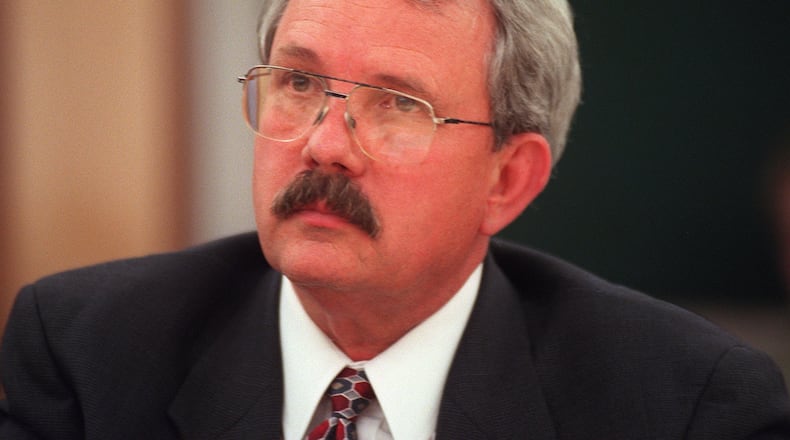In 1983, Georgia’s new governor Joe Frank Harris appointed a task force to unify the state’s independent post secondary vocational schools into a single organization. The assignment was something of a wild-west roundup, like roping ornery broncos that weren’t about to vacate their long-held patch of ground.
Harris chose then-president of Lanier Tech Ken Breeden in early 1984, to do the job. A Georgia Tech graduate, Breeden had later earned a PhD in educational leadership and had been president of two vocational-technical schools, while also possessing innate marketing panache.
“I was well into adulthood when it occurred to me, for everything he did, dad’s whole career was about PR,” said his youngest son Matthew Breeden. “Because in the beginning, the reputation of those schools was in the dirt, the perception that they were colossally backward. The primary thing he was dedicated to was convincing people not only in the potential of the system, or the schools, but the potential of each individual person.”
“As long as I knew him, Ken had a thing for people who didn’t have advantages,” said Pete Gustaf, former president of the National Center for Aviation Training in Wichita, Kansas, which Breeden helped him open. “He was about giving people opportunities to move up. Guys like that don’t come along every day, and it’s even rarer to find someone who’s in a position to do something about it.”
Operating separately from the University System’s Board of Regents, the nascent Board of Postsecondary Vocational Education standardized what was taught in the state’s technical schools. There were 20, although that number would swell to 33. But initially the biggest challenge was getting the schools converted from local to state governance.
“It was a political minefield,” Harris told The Atlanta Journal-Constitution in a recent interview. “The local boards of technical education around Georgia had their own dynasties and ways of doing things and didn’t want anyone at the state to tell them what to do. Anytime you reorganize, particularly when it affects local organizations, there is pushback. But we were able to overcome that.”
In an AJC letter to the editor in 2004, Breeden wrote that the technical college system had, “experienced record enrollment growth for 52 consecutive quarters…
…We have worked to make our technical colleges a resource that benefits both individuals who need educational opportunity and businesses that need customized training… We have worked to make sure standards of quality are consistent throughout the system, and we have stayed flexible in our planning and programs to make sure we were serving the needs of our customers — the people of Georgia.”
Kenneth Harley Breeden, who retired from the state several days after the letter was published, died December 14, 2018, at his home in Dawsonville. He’d been diagnosed just a month earlier with small cell lung, bone and liver cancer. A memorial service will be at 2 p.m. Jan. 26, Breeden’s 78th birthday, in the Ramsey Conference Center at the Hall County Campus of Lanier Technical College, 2535 Lanier Tech Dr., Gainesville.
Early in his career Breeden worked as an electrical engineer, but in the 1970s he honed in on education, including stints as president of DeVry Technical Institute from 1972-75 and Lanier Tech from 1975-84. He also played a key role in expanding Georgia’s adult literacy program, and in the 1990s Breeden worked with Gov. Zell Miller in establishing the HOPE Grant for technical institutions.
Breeden’s tour de force, however, might’ve been his influence on Georgia Quick Start, which provides updated and precise employee training for new and expanding industries.
“Breeden didn’t create Quick Start,” says Rodger Brown, its current executive director, “but he brought us into [the Georgia Department of Technical and Adult Education] and created the model we use today. We are not a college, but we are a critical in-between between for the colleges and industry.
“Breeden was unquestionably an unsung hero,” he added. “Workforce training is not the sexiest going thing. But his vision transformed technical education in Georgia.”
Breeden is survived by his wife, Gerri Breeden, sisters, Nancy Faulkner and Carole Dwyer, son Kenneth Michael Breeden (Barbara), daughter Dr. Stacy Breeden O’Quinn (Shannon Lee), son Matthew Clay Breeden and two grandchildren.
About the Author
The Latest
Featured



